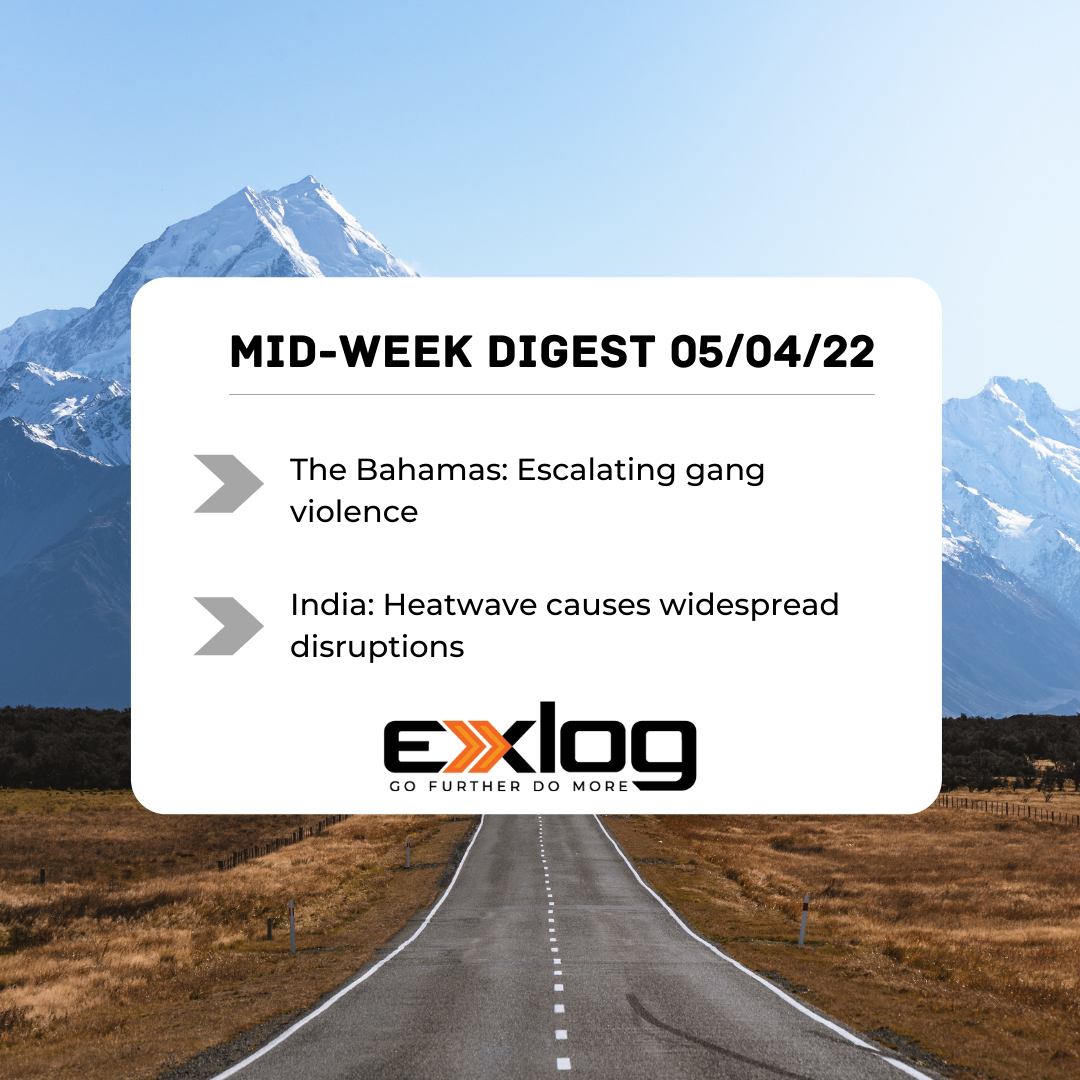Gang violence on the rise in The Bahamas and Heatwave in India
The Bahamas: Escalating gang violence
The security environment in The Bahamas has deteriorated in recent months due to a surge in gang violence and an associated increase in homicides, which has the potential to negatively impact travel safety. According to the Royal Bahamas Police Force, 48 homicides were recorded in the country from the beginning of 2022 to April 29 – compared to 119 killings recorded in all of 2021 – with the majority of these incidents occurring on New Providence, the most populous island in The Bahamas. Police claimed that most of the murders were related to gang disputes and drug trafficking; however, several homicide victims were reportedly innocent bystanders caught in armed clashes between rival criminals. While this spike in homicides is unlikely to directly affect tourists, a surge in gang violence could manifest in higher levels of other violent crimes that are more likely to impact foreign visitors. For instance, several tourists fell victim to armed robberies on New Providence in recent weeks, prompting the US Embassy in Nassau to release a security alert on April 22 warning of increased violence on the island. The robberies occurred in areas popular with tourists, and at vacation rental properties that lacked private security. Furthermore, criminal hotspots in Nassau – including the Over the Hill area – are generally located in close proximity to tourist destinations, meaning that foreign visitors could unknowingly enter higher-threat areas. Police records indicate that approximately ten criminal gangs operate in Nassau and compete for territorial control of drug operations. The Bahamas is on track to exceed last year’s homicide tally – which itself was 63% greater than in 2020, when The Bahamas experienced pandemic-related lockdowns and curfews. This upward trend of violent activity is likely to continue in the near-to-medium term, particularly on the island of New Providence, amid ongoing territorial disputes between rival gangs in Nassau.
India: Heatwave causes widespread disruptions
April’s heatwave brought extreme temperatures to India, significantly disrupting energy supplies and passenger rail traffic, and leading to a reduction in crop yields. While heatwaves have historically been common in India in the months of May and June, temperatures this year began rising in March and April, indicating that extreme weather events and the consequent disruptions are increasingly likely in the coming summer months. Average temperatures in central and northwest India reached 35.9°C (96.62° F) and 37.78°C (100° F) last month – the highest average temperature recorded in 122 years. Increased demand for electricity has led to coal shortages in many parts of India, leaving millions without power for up to nine hours a day. Coal stocks at three out of the five power plants Delhi relies on to supply its power dropped below 25%. More than 650 passenger trains were canceled through the end of May to clear routes for cargo trains in an effort to replenish the coal supply at power plants. Prime Minister Narendra Modi warned about an elevated risk of fires amid rising temperatures; a large landfill in New Delhi’s Bhalswa area caught fire on April 26, pouring smoke and toxic fumes into the air. Increased temperatures have also affected India’s agriculture sector, which accounts for approximately 20% of the country’s GDP. In Punjab and Uttar Pradesh – the states responsible for nearly 47% of India’s wheat production– the heatwave led to a loss of at least 500 kilograms per hectare of the April yield. Given the negative impact of the Russia-Ukraine conflict on the global wheat supply, this loss could have widespread consequences in the weeks and months ahead. Climate experts expect that prolonged heatwaves will become more frequent, pointing to a growing need for government and private sector initiatives to mitigate operational and supply chain disruptions during periods of extreme temperatures.


